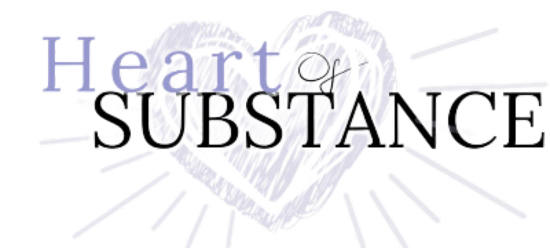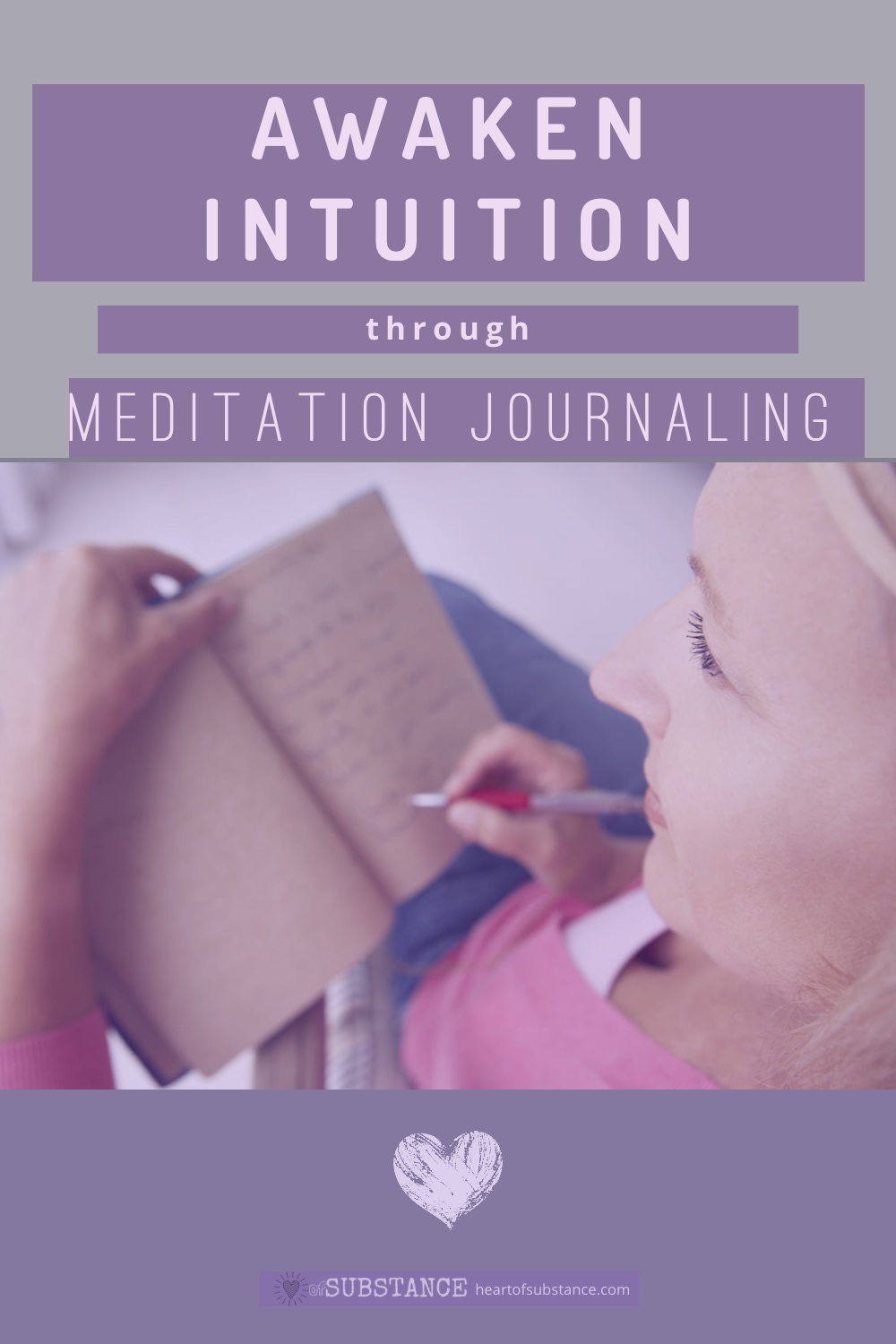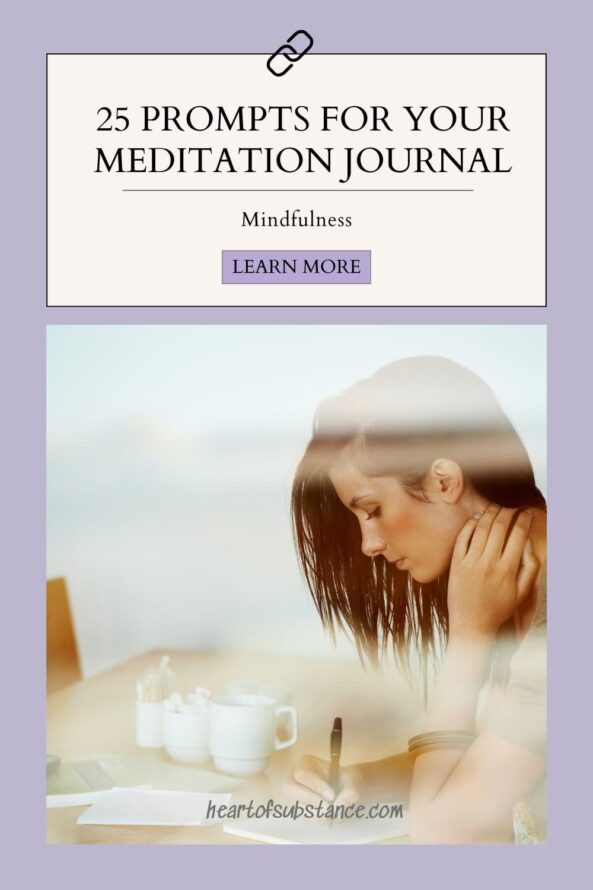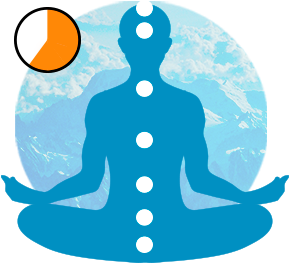Being mindful or getting in ‘the flow’ can be difficult at times when we’ve been going full bore. Journaling helps foster mindfulness and meditation journaling has a deeper advantage. Prompts will help motivate your focus. Read on for inspiration.
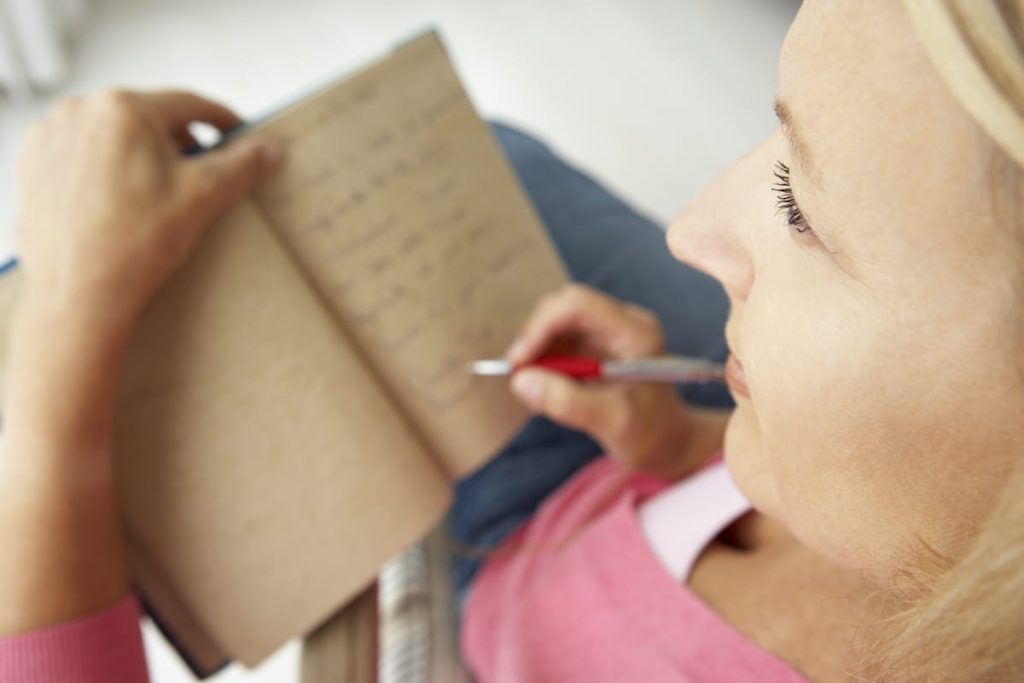
What is meditation journaling?
Meditation journaling is jotting down sensations, feelings, thoughts, and/or revelations that surface while in a ‘flow‘ state, as in during meditation.
Meditation journaling is a powerful tool for fostering mindfulness, serving as a bridge between the mind’s inner workings and the tangible world. By combining the reflective practice of journaling with the introspective nature of meditation, you can achieve a heightened state of awareness and presence.
When you sit down to meditate, you immerse yourself in the present moment, and when you journal your experiences afterwards, you solidify those moments, reflecting on the thoughts and feelings that arose during meditation. This dual practice helps in better understanding oneself, recognizing patterns, and cultivating a deeper sense of mindfulness.
A meditation journal becomes not only a history of inner recollections for self-reflection but also a medium for observing patterns, awakening intuition, and practicing mindfulness.
25+ meditation journaling prompts to help you with what to write in your meditation journal
You can expand on this list of meditation journaling prompts.
Here are another 15
- What did you notice about your breath today during meditation?
- How did your body feel before, during, and after meditating?
- What thoughts or emotions came up for you during meditation?
- Was there a specific part of my body that held tension? How did you address it?
- Did you find it challenging to stay present? Why or why not?
- What did you observe about the sounds around you while meditating?
- How did you feel at the start of your meditation compared to the end?
- What is one insight you gained from today’s meditation?
- How can you apply today’s meditation experience to your daily life?
- What intention did you set for today’s meditation, and how did it influence your practice?
- Did you use any specific techniques (e.g., visualization, mantra) today? How did they work for you?
- What are you current stressors, and how did meditation help you address them?
- How do you feel about your meditation practice today compared to when you first started?
- What positive changes have you noticed in yourself since beginning meditation?
- How do you handle distractions during meditation, and how can you improve?
- What role does gratitude play in your meditation practice?
- How does your meditation practice influence your relationships with others?
- What emotions do you find yourself resisting during meditation, and why?
- How has your perception of time changed through meditation?
- What does self-compassion mean to you, and how do you cultivate it during meditation?
- How can you create a more conducive environment for your meditation practice?
- What are your goals for your meditation practice in the next month?
- How do you integrate the lessons from meditation into your everyday actions?
- What is one thing you are proud of regarding your meditation practice?
- How does meditation help you connect with your inner self?
Journal prompts help when it’s hard to get going…here’s another idea…
- Idle doodling. It helps to get those thought juices flowing.
What I find useful is to write three things that I am grateful for that day. As a prompt, I have my notebook marked for each day and with the words “today I am grateful for…” and numbers 1, 2, 3. You can write more, but at least write three. They don’t have to be profound.
Once you’re in a habit of writing without overthinking or judging, it becomes easier.
Check out my journals!
I’ve created these workbooks for you to gain a deeper ‘knowing’ and a resilient mindset with helpful prompts, motivating quotes, and ample space to record insights and reflect on your progress in your journey of building positive inner strength and well-being.
5 Simple Choices for your meditation journal
- Record your thoughts and feelings: Write down any thoughts or emotions that come up during your meditation. This can help you identify patterns in your thinking and gain insights into your emotional state.
- Note your physical sensations: Pay attention to any physical sensations you experience during your meditation, such as tension in your body or aches and pains. This can help you become more aware of your body and learn to relax more deeply.
- Reflect on your practice: Take some time to reflect on your meditation practice as a whole. Think about what you have learned, what has challenged you, and what you would like to focus on in the future.
- Set intentions: Use your meditation journal to set intentions for yourself, such as practicing gratitude or cultivating compassion. Write down specific actions you can take to achieve these goals.
- Track your progress: Keep track of how often you meditate and how long your sessions are. This can help you stay motivated and see how your practice is evolving over time.
What else to write in a Meditation journal
As Melbourne Meditation Centre offers, it’s best to head the journal entry with at least a date and time. It’s also worth noting the place/space you used, the relaxation method, the music or other props or info you’d like to track over time to look back on as a reference for observing patterns or for what has been working for you, etc.
Meditation journaling is personal, often with meaning only to you, the person who wrote the journal notes. Not everyone likes to share such personal writing for fear of ridicule or that it will undermine the meaningfulness of their jottings. And rightly so. It reveals a sacred place…the inner sanctuary.
Why practice using a meditation journal?
It is something you can look back on to help with identifying patterns in your thoughts and vibes.
It can be especially encouraging at times when it feels like you’re not making any progress to see tangible evidence of your growth and development.
In your journal, you write about what comes to mind, your feelings, and your physical sensations. In this way, your meditation journal enhances your mindfulness practice by encouraging deeper self-awareness and introspection.
It’s a personal tool for self-reflection and growth. It will provide insights into your triggers, stressors, and sources of joy, enabling you to cultivate a more balanced and mindful approach to life.
Check out my journals!
I’ve created these workbooks for you to gain a deeper ‘knowing’ and a resilient mindset with helpful prompts, motivating quotes, and ample space to record insights and reflect on your progress in your journey of building positive inner strength and well-being.
There are 3 steps to starting a meditation journaling practice…
1. Find a journal that resonates with you
Get yourself a journal or diary, one that resonates with you. Keep this one book, especially for the purpose of meditation journaling. And keep it in a special place.
When using it for this purpose, keep the journal, notebook, or diary in the space where you meditate or in that place where you find calm and peace.
2. Clear the clutter. Remove distractions
The best way to clear the clutter is through mindfulness techniques – A calming technique that enables a flow state of mind.
Try jotting down all the stuff that’s going round and round in your head until you’ve exhausted that, then doodle for a few minutes until you feel relaxed and ready to enter into a state of ‘flow’ – i.e. writing without worry, thinking or judging.
Or, you could go outside and gaze at the Moon and stars (or clouds) in the sky to clear your mind.
3. Use meditation journaling prompts
If your mind is blank and you are finding it hard to write, it’s worth using journaling prompts to get that flow happening. Having some standard notations will also serve as a reference to observe patterns or insights when looking back on recollections in the future.
How to Access the flow state of mind
You can access the flow state of mind during meditation. But there are other ways.
If you are new to meditation you can try other relaxation techniques – putting on calming music, a breathing technique, or a relaxing bath.
Steve Jobs had this thing of walking barefooted as a way to access the ‘flow’ state.
Final thoughts
Meditation journaling is a means of awakening your ‘higher intelligence’.
You might prefer to call this your ‘inner self’, the Universe, angels, God, or simply intuition, whatever you may believe. Either way, trust, faith, and a willingness to open yourself to intuition are at the heart of meditation journaling and is a way to access a ‘voice’ other than your logical thinking brain.
Check out my journals!
I’ve created these workbooks for you to gain a deeper ‘knowing’ and a resilient mindset with helpful prompts, motivating quotes, and ample space to record insights and reflect on your progress in your journey of building positive inner strength and well-being.
References
Elaine Houston B. Sc.: Examples of Flow State | Melbourne Meditation Centre: Keeping a Meditation Journal |
Other readings
Belitz, C. & Lundstrom, M. (1998). The Power of Flow: Practical Ways to Transform Your Life with Meaningful Coincidence. US: Harmony Publishers.
Bonaiuto, M., Mao, Y., Roberts, S., Psalti, A., Ariccio, S., Ganucci Cancellieri, U., & Csikszentmihalyi, M. (2016). Optimal Experience and Personal Growth: Flow and the Consolidation of Place Identity. Frontiers in Psychology, 7, 1654. doi:10.3389/fpsyg.2016.01654.
Chirico, A., Serino, S., Cipresso, P., Gaggioli, A., & Riva, G. (2015). When music “flows”. State and trait in musical performance, composition and listening: a systematic review. Frontiers in Psychology, 6, 906. doi:10.3389/fpsyg.2015.00906.
Csikszentmihalyi, M. (1990). The Psychology of Optimal Experience. New York: Harper & Row Publishers.
Hanin, Y. L. (2000). Emotions in sport. Champaign, IL, US: Human Kinetics.
Jackson, S.A. (1992). Athletes in flow: A qualitative investigation of flow states in elite figure skaters. Journal of Applied Sport Psychology, 4, 161-180.
Mitchels, L. (2015). The Relationship Between Achievement Goals and Psychological Flow. Journal of Student Research. 174-190.
Ryff, C. D., Singer, B. H., & Dienberg Love, G. (2004). Positive health: connecting well-being with biology. Philosophical Transactions of the Royal Society of London, 359, 1383-94.
Van Passel, P. & Eggink, W, (2013). Exploring the influence of self-confidence in product sketching, International Conference of Engineering and Product Design, 70-75, Dublin, 2014.
